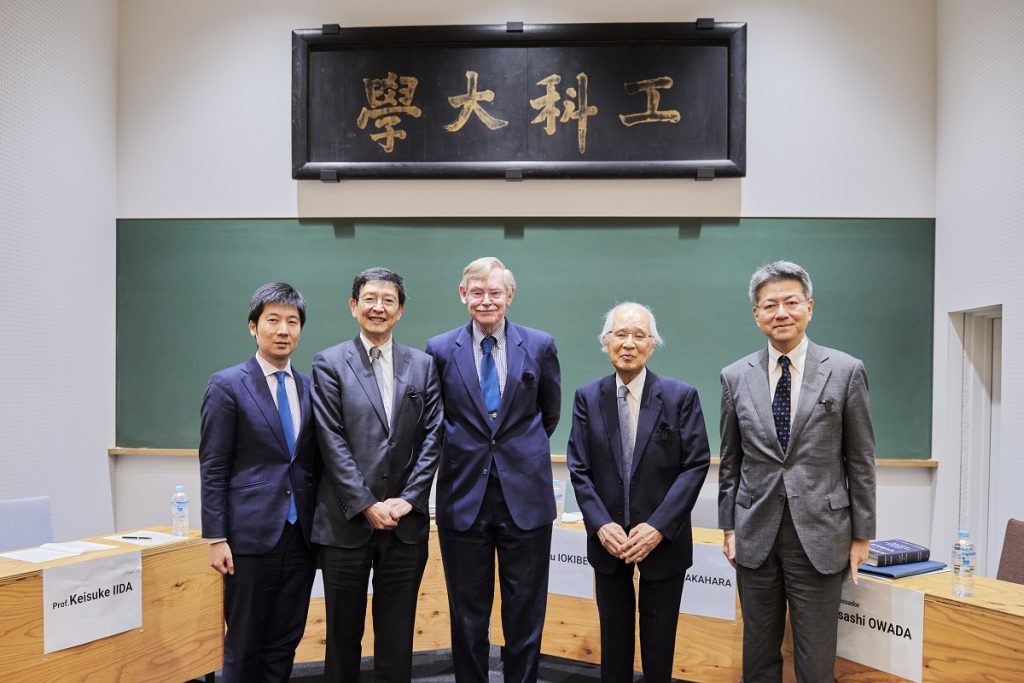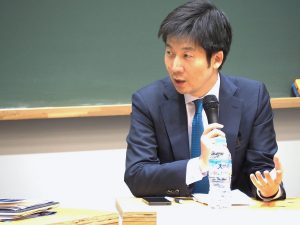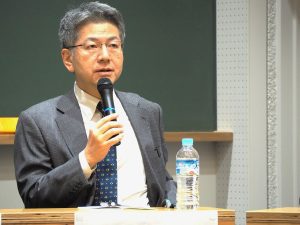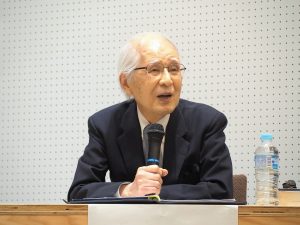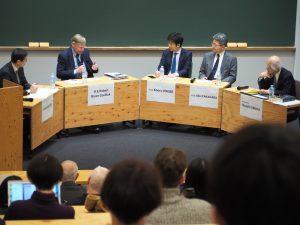Summary
,
Public Policy Seminar
On Tuesday, December 12, 2023, GraSPP hosted a lecture titled “History and Prospects of U.S. Diplomacy and Foreign Policy” by Robert Zoellick, former President of the World Bank, former Deputy Secretary of State and U.S. Trade Representative. In addition to Ambassador Hisashi Owada, former President of the International Court of Justice, Professor Keisuke Iida, Dean of the Graduate School of Public Policy, and Professors Akio Takahara and Kaoru Iokibe of the Graduate Schools of Law and Politics joined the panel to discuss American foreign policy from the perspectives of their respective fields of expertise. This event was the 92nd Public Policy Seminar co-sponsored by the Graduate School of Public Policy and the Iida Laboratory and was attended by about a hundred people.
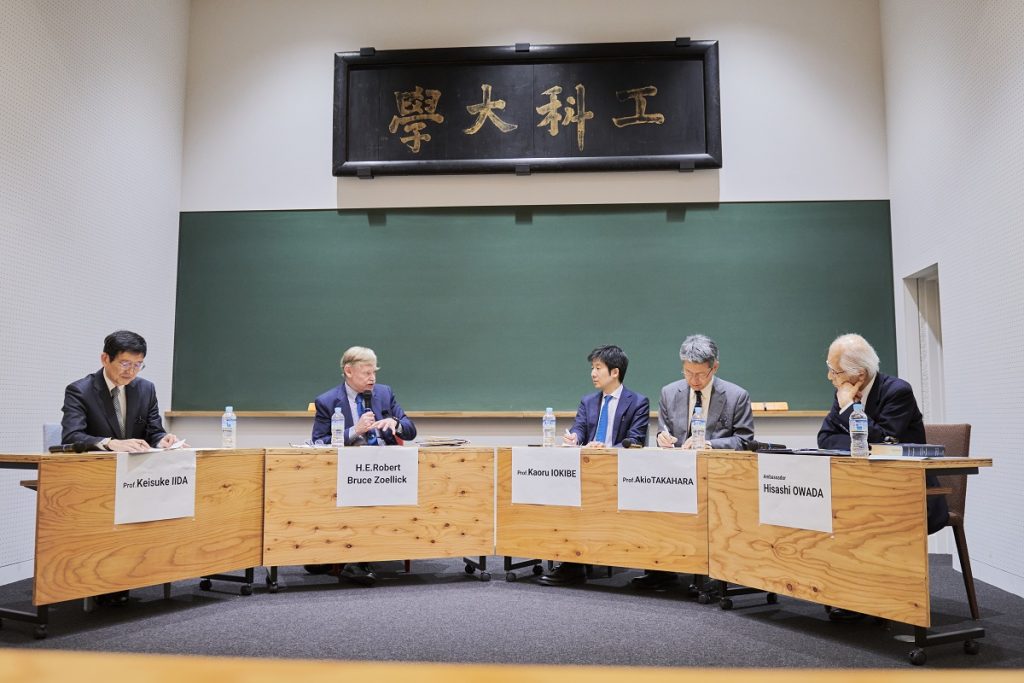
The keynote address was given by Mr. Zoellick based on his 2020 book, America in the World: A History of U.S. Diplomacy and Foreign Policy (translated by Hideaki Asahi). Mr. Zoellick began by arguing that a historically grounded view of international politics can help us understand foreign policy choices that theory cannot explain.
In his book, Mr. Zoellick summarizes the history of American foreign policy from the time of Benjamin Franklin to the present and analyzes how those responsible for American foreign policy have relied on history to make choices. He argued that understanding history can provide clues for thinking about war and peace today, given that “war and peace” was the cornerstone of his foreign policy.
In addition, Mr. Zoellick cited Taiwan as an example of one of the major issues in China’s relations, saying that to understand China’s Taiwan policy, it is necessary to understand “one hundred years of humiliation,” and that with regards to the U.S.-China conflict, a deeper understanding of the history of the Cold War between the United States and the Soviet Union will reveal differences with the present.
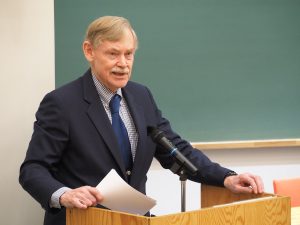
In the following panel discussion, Dean Iida moderated a lively exchange of opinions among Mr. Zoellick, Ambassador Owada, Professor Takahara, and Professor Iokibe.
Professor Iokibe pointed out that while the historical perceptions of those in charge of U.S. foreign policy are important, we should also touch on how the backgrounds and personalities that shape those perceptions influence policy decisions.
Professor Takahara pointed out that America’s unpopularity in the Global South may be due to the indifference of successive U.S. administrations to the region, and he also questioned whether the “responsible stakeholder” theory for China advocated by Mr. Zoellick was intended to bring about regime change in China as part of America’s democratization policy. In response, Mr. Zoellick clarified that he stressed that the “responsible stakeholder” argument is about getting China to share the normative values that the United States has.
Ambassador Owada raised the question of how to balance the “national interest” and the “international public interest” that diplomats always face. Zoellick said that the “national interest” and the “international public interest” are not necessarily contradictory, and that the role of diplomats is to develop the common good as the “national interest.”
Mr. Zoellick concluded his lecture by emphasizing the importance of “stepping into the shoes of the other side” since historical awareness is deeply related to the foreign policy of each country.
